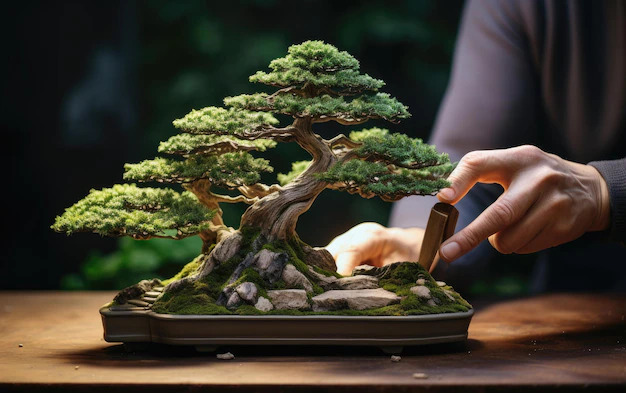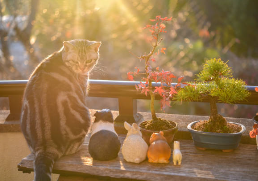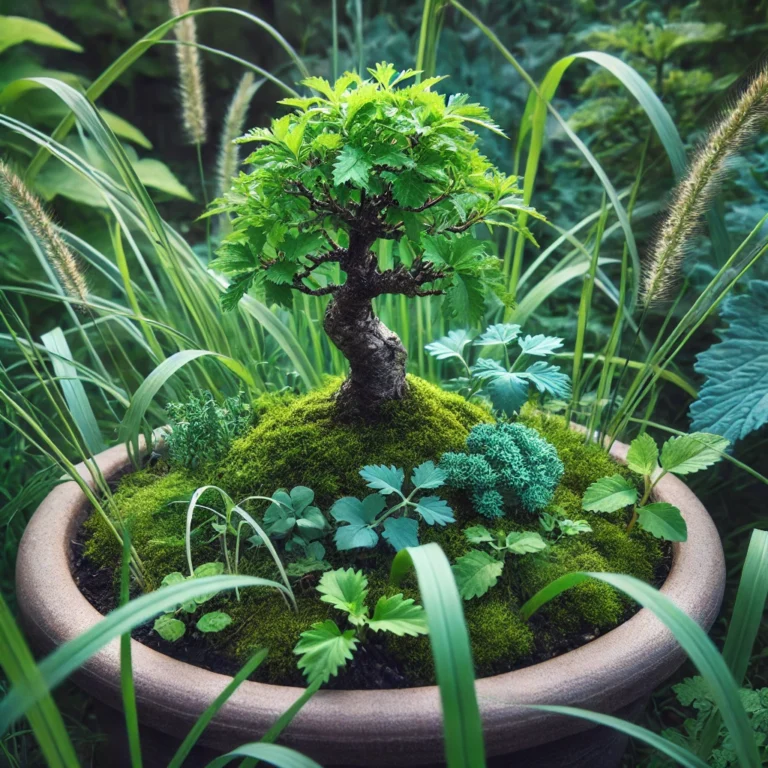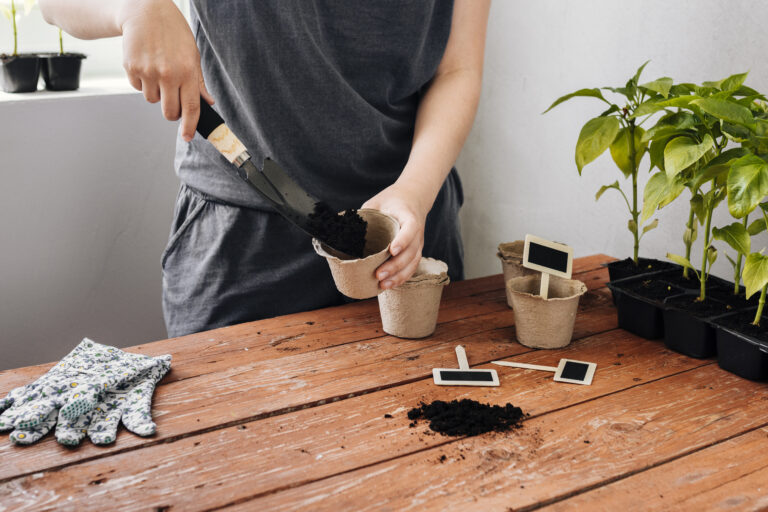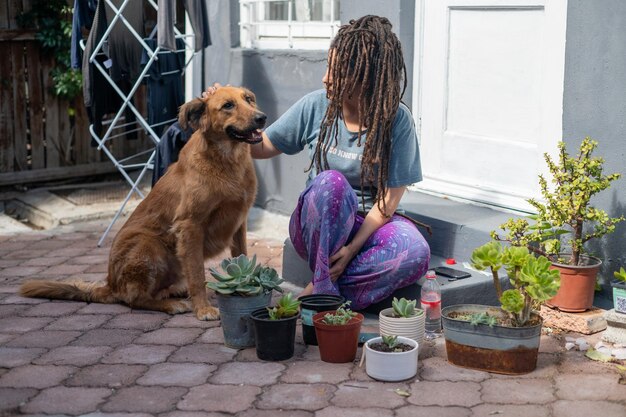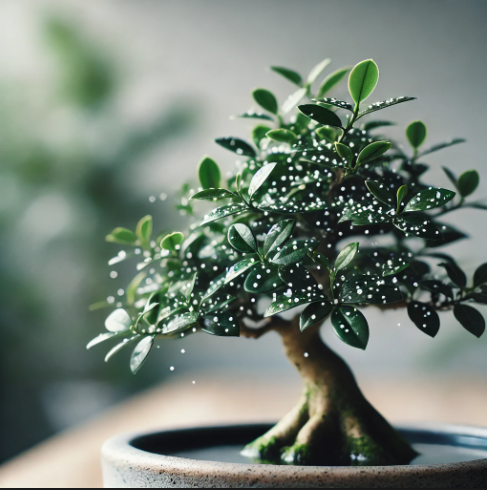Does Bonsai Bring Good or Bad Luck at Home?
In the enchanting world of bonsai, where miniature trees grace windowsills and bring nature indoors, a captivating question often lingers: does bonsai bring good or bad luck to your home? The allure of these intricately crafted botanical wonders goes beyond mere aesthetics, delving into a realm where cultural beliefs, historical significance, and personal perceptions intertwine. Join us on a journey as we explore the enigma surrounding bonsai, seeking to unravel the age-old mystery and discern whether these diminutive arboreal companions herald fortune or misfortune within the confines of our homes.

Introduction
Origins of Bonsai
- Bonsai, a Japanese term meaning “planted in a container,” has a rich history dating back to ancient China. It evolved as an art form over the centuries, with roots deeply embedded in the Chinese tradition of penjing. The Japanese embraced and refined bonsai, turning it into the miniature, aesthetically pleasing trees we know today.
- The cultural significance of bonsai is profound. Originating in China, bonsai became synonymous with harmony, balance, and a connection to nature. As it migrated to Japan, it took on new meanings, intertwining with Shinto and Buddhist philosophies. Bonsai became not just a horticultural practice but a reflection of the cultural values and aesthetics of the people.
Luck and Superstition
- Human history is peppered with a fascination for luck and symbols believed to bring good fortune. Whether it’s a rabbit’s foot or a four-leaf clover, we seek connections to the mystical and the auspicious. Bonsai, too, finds itself entwined in this human desire for luck and positive energies.
- I The belief in the connection between bonsai and luck is an intricate part of its allure. Many cultures, particularly in East Asia, view bonsai as not just ornamental but as carriers of positive energy. Understanding this connection requires delving into the world of artistry, symbolism, and cultural beliefs surrounding these miniature wonders.
The Bonsai Journey
Artistry Behind Bonsai
- Bonsai goes beyond being a mere plant; it’s a living canvas that evolves over time. Artists meticulously shape and prune these miniature trees, turning them into expressions of nature in a confined space. The artistry lies in capturing the essence of a full-sized tree within the constraints of a small pot.
- Crafting a bonsai requires a delicate touch and a profound understanding of horticulture. Artists master the art of pruning, wiring, and styling to create a harmonious balance between the tree’s natural form and the artist’s vision. It’s a lifelong journey of learning and refinement.
Cultural Symbolism
- In Japanese culture, bonsai symbolizes harmony, balance, and the continuous pursuit of perfection. It reflects the transient nature of life. In China, the origins of bonsai, it carries symbolism related to luck, prosperity, and the miniature representation of the natural world.
- Bonsai has transcended its Asian roots and found a place in cultures worldwide. It might symbolize patience and reflection in Western cultures or be a representation of the interconnectedness of all things in Eastern philosophies. Understanding these diverse perspectives adds layers to the symbolic tapestry of bonsai.
Feng Shui and Bonsai
Essentials of Feng Shui
- Feng Shui, an ancient Chinese art, revolves around the flow of energy, or chi. Proper energy flow is believed to bring harmony and positive influences into a space. Bonsai, as a living entity, is seen as a tool to manipulate and enhance this energy flow.
- Placing a bonsai strategically in accordance with Feng Shui principles aims to create harmony within the home. The type of tree, its placement, and even the direction it faces are considered to influence the balance of energy, impacting the well-being of those inhabiting the space.
Ideal Bonsai Placements
- The decision to place a bonsai indoors or outdoors is multifaceted. Indoor bonsai can bring nature into living spaces, while outdoor bonsai can thrive in natural conditions. The choice depends on the type of tree, local climate, and personal preferences.
- Feng Shui offers specific guidelines for placing bonsai. For example, a bonsai placed in the wealth corner is believed to attract financial prosperity. Understanding these considerations allows enthusiasts to harness the potential positive energies associated with bonsai.
Historical Context
Bonsai in History
- Bonsai wasn’t limited to commoners; it found a prestigious place in the gardens of royalty. Emperors and nobility in ancient China and Japan cultivated bonsai as a symbol of wealth, refinement, and a connection to nature.
- In ancient Chinese culture, bonsai wasn’t merely an art form but had ritualistic significance. It was associated with Taoist practices, symbolizing the balance between man and nature. Understanding the historical context adds depth to the perceived importance of bonsai.
Positive Vibes from Bonsai
Plants and Positive Energy
- Scientifically, indoor plants have been linked to improved air quality and enhanced well-being. Bonsai, as a miniature indoor tree, contributes to a healthier living environment, positively impacting the physical and mental health of its caretakers.
- Beyond the physical benefits, the presence of greenery indoors has psychological advantages. Bonsai, with its aesthetic appeal, offers a sense of calmness and connection to nature, reducing stress and enhancing overall mood.
Personal Experiences
- Personal testimonials abound with stories of individuals experiencing positive impacts from their bonsai companions. From reduced stress to a heightened sense of responsibility, the personal connection with these miniature trees goes beyond mere aesthetics.
- Enthusiasts often share personal accounts of how bonsai cultivation becomes a meditative practice. The act of nurturing a living entity, witnessing its growth, and shaping its form fosters a unique bond, contributing to the overall positive experiences of bonsai ownership.
Bonsai Superstitions
Common Myths
- Misconceptions about bonsai Common myths surround bonsai, ranging from the belief that they stunt the growth of trees to the notion that they bring bad luck. These misconceptions often stem from a lack of understanding of the artistry and care involved in bonsai cultivation.
- The truth behind popular superstitions Dispelling myths requires understanding the science behind bonsai. The controlled conditions, careful pruning, and nurturing care are geared not to hinder but to enhance the health and longevity of these miniature trees.
Debunking Myths
- Bonsai cultivation is an art and a science. Separating fact from fiction involves acknowledging the misconceptions and presenting the scientific perspectives that debunk these myths, providing a more accurate understanding of bonsai.
- Understanding the scientific basis behind bonsai care and cultivation dismantles superstitions. From controlled growth to the benefits of pruning, science supports the positive impact of bonsai on both the trees and their caretakers.
Does bonsai bring good or bad luck?
| Aspect | Bad Luck | Good Luck |
|---|---|---|
| Cultural Symbolism | Some cultures associate bonsai with death and misfortune. | In Japanese and Chinese cultures, bonsai symbolizes harmony, balance, and positive energy. |
| Superstitions | Misconceptions may link bonsai to negative energies and superstitions. | Many believe bonsai attracts positive energies, contributing to well-being and fortune. |
| Feng Shui Placement | Incorrect placement, according to Feng Shui, might lead to disturbances and negative energy flow. | Proper placement can enhance positive energy flow, bringing harmony and good fortune. |
| Historical Context | In ancient times, bonsai might have been used in rituals with varying beliefs. | Presence in royal gardens suggests bonsai had positive connotations as symbols of prestige. |
| Positive Vibes | Some may argue that the psychological benefits of bonsai are overstated. | Studies suggest indoor greenery, including bonsai, positively influences human well-being. |
| Personal Beliefs | Individual interpretations may view bonsai as ominous or unlucky. | Many see bonsai as a personal talisman, shaping positive perceptions and beliefs. |
| Care and Maintenance | Neglect and improper care might lead to the withering of the bonsai, seen as a negative omen. | Proper care ensures a healthy bonsai, reinforcing positive associations and luck. |
| Misfortune Stories | Anecdotes circulate about supposed misfortune brought by specific bonsai trees. | Historical instances of negativity are often outweighed by positive stories and experiences. |
| Choosing the Right Bonsai | If chosen without consideration for personal beliefs, it might be seen as bringing bad luck. | Selecting a bonsai that aligns with individual beliefs enhances the positive energy it brings. |
| Bonsai as Gifts | Inappropriate gifting times or cultural misunderstandings may lead to negative perceptions. | Bonsai gifts, given at appropriate times and understood culturally, convey positive intentions. |
| Real-life Stories | Some individuals may share experiences attributing misfortune to bonsai. | Success stories highlight the positive impact bonsai can have on personal luck and well-being. |
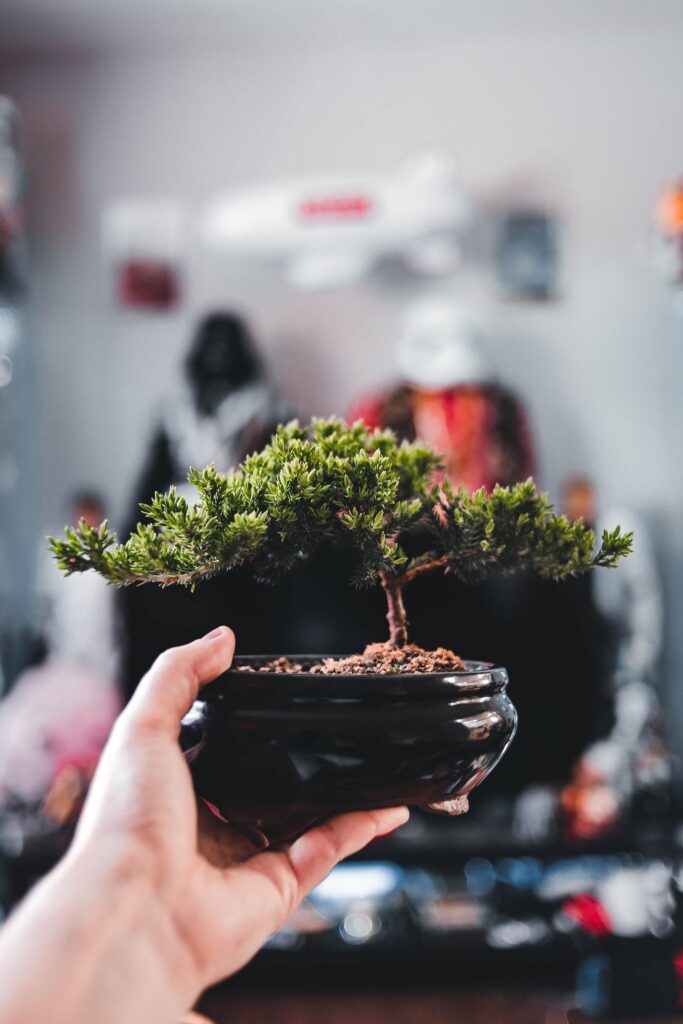
FAQ Section
Positive vs. Negative Energy
- Do bonsai trees attract positive energy? Bonsai, when cared for with love and attention, can contribute positively to the energy of a space. The act of nurturing a living entity often brings a sense of positivity and connection.
- Can bonsai trees bring bad luck? The belief in bonsai bringing bad luck is rooted in misconceptions. Bonsai, when understood and cultivated properly, does not bring bad luck. Instead, it offers a channel for aesthetic appreciation and well-being.
Species Specifics
- Are certain bonsai species luckier? The concept of luckiness is often subjective and cultural. Different cultures may have specific beliefs about certain bonsai species bringing luck, but these perceptions vary widely.
- Popular choices for positive energy While specific species may not guarantee luck, some bonsai varieties are popular for their aesthetic appeal and ease of care, contributing to a positive and vibrant atmosphere.
Placement and Fortune
- Should bonsai be placed in specific areas for good fortune? Feng Shui principles suggest specific placements for bonsai to enhance positive energy and good fortune. However, personal preferences and cultural beliefs play a significant role in determining ideal locations.
- How does cultural background affect perception? Cultural backgrounds shape perceptions of bonsai. What may be considered auspicious in one culture could be perceived differently in another. Understanding these nuances allows individuals to align bonsai placement with their cultural beliefs.
Personal Beliefs and Bonsai
Individual Interpretations
- For many, bonsai becomes more than just an art form; it becomes a personal talisman, representing values, aspirations, and a connection to nature. The interpretation of bonsai’s significance is deeply personal.
- The perceived luck associated with bonsai is often a matter of personal interpretation. The act of cultivating and appreciating these miniature trees can influence one’s sense of well-being and, consequently, their perception of luck.
Cultural Practices
- Various cultures incorporate bonsai into rituals, ceremonies, or celebrations. These rituals deepen the cultural significance of bonsai, making it more than just an ornamental plant but a meaningful part of cultural practices.
- cultural variations in how bonsai is perceived add layers to its symbolism. Understanding these variations allows for a more comprehensive appreciation of bonsai’s role in different cultures.
Care and Luck
Importance of Proper Care
- Neglecting any living entity, including bonsai, can have adverse effects. Proper care ensures the health and vitality of the tree, contributing to the positive experiences associated with bonsai ownership.
- Basic care tips, including proper watering, adequate sunlight, and timely pruning, are essential for maintaining a healthy bonsai. Following these guidelines enhances the longevity and aesthetic appeal of the miniature tree.
Bonsai Misfortune Stories
- Anecdotes of misfortune associated with bonsai often stem from misunderstandings or neglect. Realizing the importance of proper care dispels the notion that bonsai brings misfortune.
- Historical instances where bonsai was believed to bring negativity are often rooted in cultural superstitions. Analyzing these instances from a historical context sheds light on the evolving perceptions of bonsai.
Choosing the Right Bonsai
Matching with Personal Beliefs
- When choosing a bonsai, aligning it with personal beliefs and cultural values adds a deeper layer of meaning. This personalized selection enhances the overall experience of bonsai ownership.
- While personal preferences play a significant role, certain bonsai varieties, such as the Ficus or Juniper, are popular for their adaptability and aesthetic appeal, contributing to a positive energy in the space.
Indoor vs. Outdoor
- Deciding between indoor and outdoor placement involves considering factors such as local climate, available space, and the specific needs of the bonsai species. Each decision contributes to the overall well-being of the tree.
- Some bonsai varieties thrive better indoors, while others flourish in outdoor conditions. Understanding the specific needs of different species helps enthusiasts make informed decisions on the placement of their bonsai.
Bonsai as Gifts
Symbolism of Bonsai Gifts
- The act of gifting a bonsai carries profound symbolism. It represents a wish for growth, harmony, and longevity, making it a thoughtful and meaningful gift in various cultures.
- when gifting a bonsai, understanding the cultural nuances and preferences of the recipient ensures a positive reception. A well-chosen bonsai can become a cherished symbol of the giver’s good intentions.
Occasions for Bonsai Gifts
- Bonsai gifts are suitable for a range of occasions, from birthdays to housewarmings. Understanding the appropriateness of different occasions adds a thoughtful touch to the act of gifting.
- Different cultures may have specific occasions deemed suitable for bonsai gifting. Recognizing these cultural variations enhances the meaningfulness of the gift.
Real-life Stories
Impact on Personal Luck
- Numerous individuals share personal stories of how bonsai cultivation positively impacted their lives. From fostering a sense of responsibility to providing a source of joy, these real-life experiences showcase the diverse ways bonsai contributes to personal luck.
- Success stories in the world of bonsai cultivation inspire enthusiasts. From transforming neglected trees into thriving masterpieces to fostering a community of like-minded individuals, these success stories highlight the transformative power of bonsai.
Modern Perspectives
- In the modern era, bonsai has evolved beyond its traditional roots. It is embraced by individuals seeking a connection to nature, a mindful hobby, or a unique form of artistic expression. Understanding these modern perspectives allows for a broader appreciation of bonsai in contemporary homes
- Bonsai has found its place in contemporary homes as more than just a decorative element. It is seen as a symbol of mindful living, a connection to nature in urban spaces, and a form of artistic expression that resonates with modern sensibilities.
Conclusion
In our exploration of bonsai’s journey, from its historical evolution to its cultural symbolism, we unveil a rich tapestry of diverse beliefs. The mystique that surrounds bonsai is not easily categorized as merely good or bad luck.
Bonsai, beyond being a mere plant, serves as a canvas for artistic expression and cultural symbolism. The question of luck becomes subjective, entwined with individual beliefs and interpretations. It encourages us to explore the depths of cultural practices, personal experiences, and the interplay between nature and human perception.
In essence, the answer to whether bonsai brings good or bad luck at home is as intricate and nuanced as the art form itself. The journey through its history, cultural significance, and personal narratives leaves us with a sense of awe and a reminder that beliefs are as diverse as the bonsai trees themselves.


